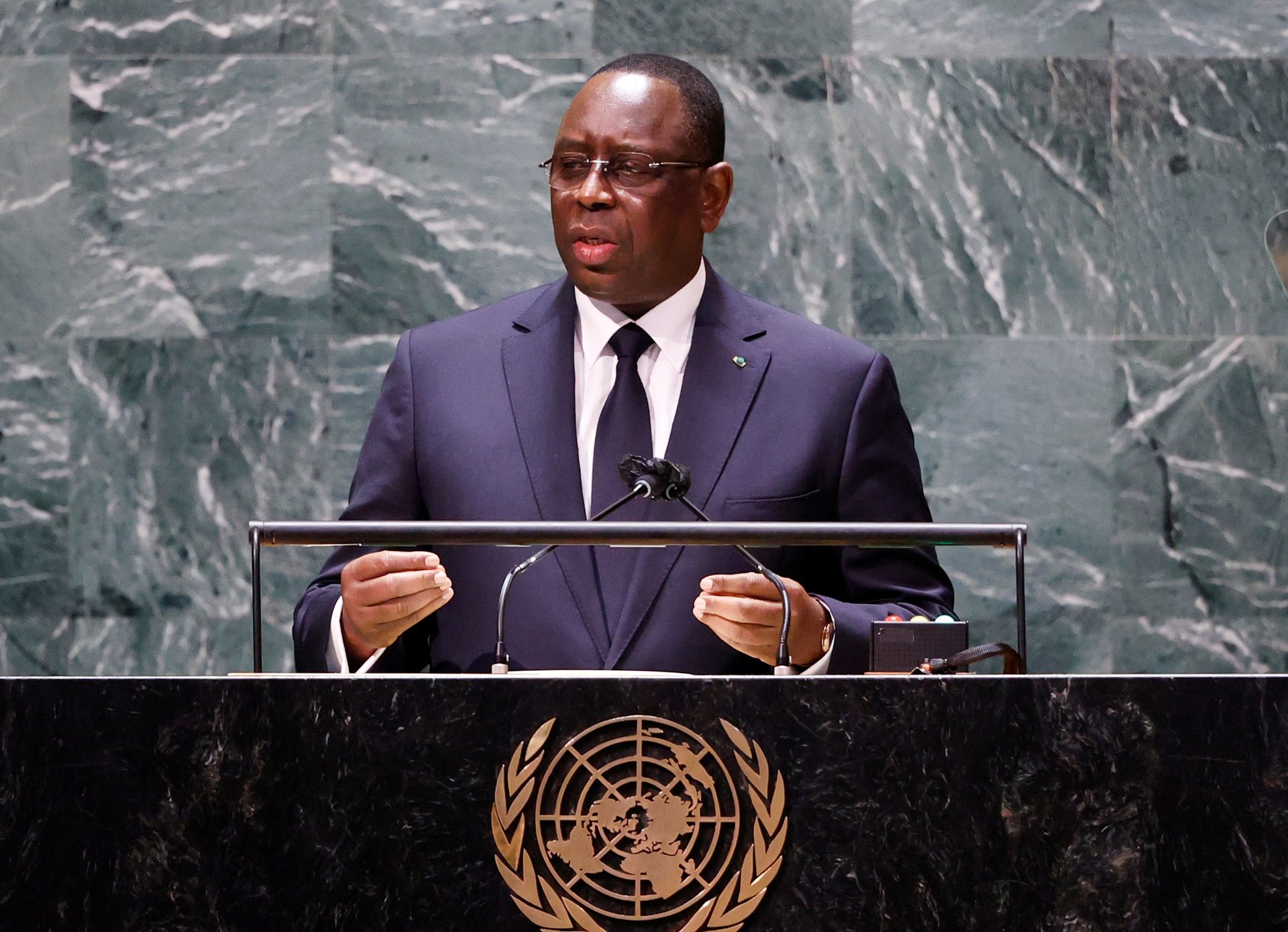Pressure is rising for western countries to lift sanctions against Zimbabwe
The AU, South Africa and war veterans are leading the push for the removal of sanctions against Zimbabwe. The country has lost $100 billion due to this

At the 77th session of the United Nations General Assembly (UNGA) in New York on Sept. 20, the African Union (AU) piled more pressure on the US, EU, and UK to lift all sanctions against Zimbabwe.
AU chairman—Senegal’s president Macky Sall—said the “harsh measures continue to fuel a sense of injustice against an entire people, and aggravate their suffering in these times of deep crisis.”
The sanctions which began in the 2001/2002 financial year were caused by a land reform program initiated by the government decision to repossess land from minority white farmers for redistribution to landless Zimbabweans.
A 2021 report disclosed that since the sanctions came into effect Zimbabwe has lost access to more than $100 billion in bilateral donor support, grants, and loans from the IMF, the World Bank, and the African Development Bank. World Bank data shows that at the height of sanctions, Zimbabwe’s GDP contracted from $6.78 billion in 2001 to $4.42 billion in 2008.
Sall’s remarks at UNGA come four days after South African president Cyril Ramaphosa told US president Joe Biden during a visit to White House that the sanctions against Zimbabwe were weakening the country’s economy. Ramaphosa also pointed out that the restrictions are directly affecting South Africa, which is home to over 85% of the 908,913 Zimbabwean nationals that make up the diaspora. Biden did not respond.
Sanctions are tainting Zimbabwe’s financial reputation
In 2019, US financial and travel restrictions targeted 85 individuals, including Zimbabwe’s president Emmerson Mnangagwa, and 56 companies. The EU has maintained that the restrictions have no impact on the country’s economy.
However, the restrictions are adding into Zimbabwe’s existential economic woes, with inflation soaring to 285% in August forcing the central bank to introduce gold coins. Foreign direct investment as a percentage of GDP in Zimbabwe has fallen from 6.9% in 1998 to 0.8% in 2020.
On Sept. 19, in a statement ahead of the Queen’s burial, Zimbabwe’s war veterans who fought in the country’s colonial wars against the British pleaded with King Charles III to persuade the UK to scrap the deterrent barriers, saying they contribute to the country’s low reputation as an investment destination. The Zimbabwe War Veterans’ spokesperson Douglas Mahiya said the sanctions should be lifted because they are “evil.”
Demonstrating outside the US embassy in Harare in July, locals said the sanctions had caused them misery and economic suffering.
“We realized that most industries closed due to sanctions, meaning that sanctions are actually the major cause for all our other problems in Zimbabwe,” Sally Ngoni, spokesperson of the Broad Alliance Against Sanctions spokesperson which has been protesting since March 29, 2019 told Xinhua.
On Sept. 15, the US delisted 11 Zimbabweans from the Specially Designated Nationals (SDN) list, saying they’re “either deceased or have been deemed to no longer undermine Zimbabwe’s democratic processes and institutions.”